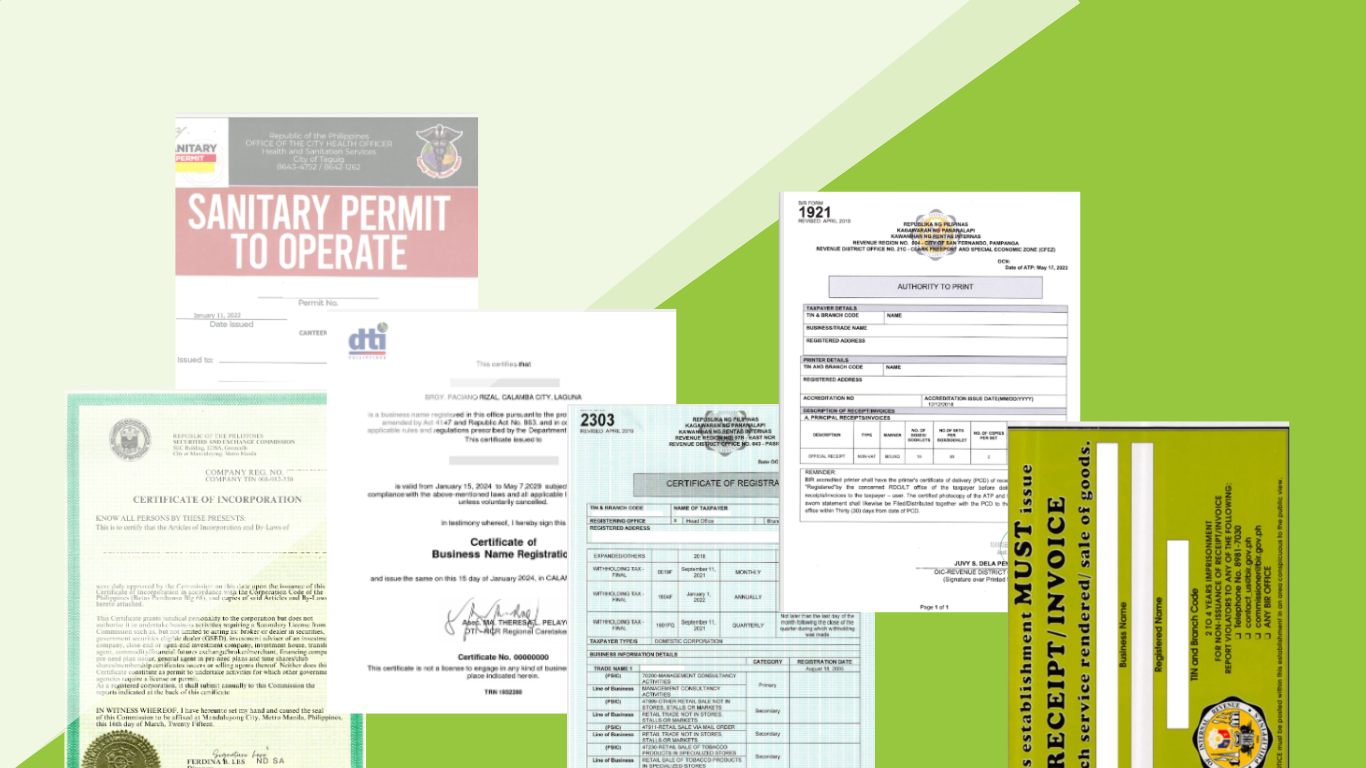The Philippines is experiencing a wave of entrepreneurial energy, supported by an improving economic landscape, a growing digital economy, and government initiatives aimed at fostering innovation. In this dynamic environment, choosing the right industry for your startup can make all the difference. In 2025, several sectors are projected to grow significantly, driven by shifts in consumer behavior, technological advancements, and global trends. This article provides an in-depth look into the top industries to consider for startups in the Philippines, offering insights into the opportunities and challenges within each sector.
1.) Financial Technology (FinTech)
The FinTech industry has seen remarkable growth, transforming how Filipinos manage their finances. With the government promoting financial inclusion, particularly in rural areas, more people are accessing digital wallets and alternative financial services. Startups are addressing gaps in traditional banking by offering microloans, insurance services, peer-to-peer lending, and cryptocurrency solutions.
Opportunities of FinTech
a. Mobile Wallets: There is an opportunity to introduce niche e-wallet services tailored for rural communities and small businesses.
b. Microfinancing and Peer-to-Peer Lending: Platforms targeting unbanked and underbanked individuals can drive financial inclusion.
c. Blockchain and Cryptocurrency Solutions: FinTech startups can leverage blockchain for secure and transparent transactions.
Challenges of FinTech
a. Competition among established players such as GCash and Maya.
b. Navigating regulatory frameworks for digital banking and cryptocurrency.
Why Now?
The Bangko Sentral ng Pilipinas (BSP) aims to digitize 50% of retail payments and bring 70% of Filipinos into the formal financial system by 2025, making this a golden era for fintech startups.
2.) E-commerce and Logistics
The e-commerce industry continues to thrive, driven by the growing preference for online shopping. As demand rises, so does the need for seamless logistics solutions. Startups providing last-mile delivery, fulfillment centers, and warehouse management systems are essential to the success of the e-commerce ecosystem.
Opportunities of E-commerce and Logistics
a. Niche E-commerce Platforms: Entrepreneurs can create platforms that focus on niche markets, such as sustainable products or local artisanal goods.
b. Last-Mile Delivery Solutions: Hyperlocal delivery services for same-day or on-demand deliveries are in high demand.
c. Warehouse and Inventory Management: Automated warehousing solutions can address storage challenges.
Challenges of E-commerce and Logistics
a. Maintaining fast and cost-effective deliveries amidst traffic congestion in urban areas.
b. Intense competition from established marketplaces like Lazada, Shopee, and Amazon.
Why Now?
As consumers embrace the convenience of online shopping, the e-commerce sector is expected to grow by 22.9% by 2025. The rise of cross-border shopping also creates opportunities for new entrants in logistics.
3.) Health and Wellness
Filipinos are becoming increasingly health-conscious, particularly after the pandemic, driving demand for healthtech solutions and wellness services. The industry is not limited to physical health—mental health platforms and wellness apps are also gaining traction.
Opportunities of Health and Wellness
a. Telehealth Platforms: Startups providing virtual consultations and remote patient monitoring can make healthcare more accessible.
b. Mental Health Services: Digital counseling platforms offer much-needed support in a growing mental health crisis.
c. Organic and Nutritional Products: There is growing demand for health supplements, organic food, and sustainable wellness products.
Challenges of Health and Wellness
a. Overcoming skepticism toward online health services among older consumers.
b. Strict compliance with healthcare regulations.
Why Now?
The government’s universal healthcare program and increasing awareness of mental well-being are pushing the sector forward, creating an ideal environment for startups.
4.) Renewable Energy and Sustainability
The push for sustainable energy solutions is gaining momentum in the Philippines. The government is providing incentives for businesses investing in renewable energy sources, such as solar and wind power. This trend opens up opportunities for startups to develop eco-friendly solutions.
Opportunities of Energy and Sustainability
a. Solar Energy Solutions: Startups can distribute affordable solar kits for residential and commercial use.
b. Waste-to-Energy Projects: There is potential to transform waste management with innovative energy recovery technologies.
c. Electric Vehicle Infrastructure: As demand for electric vehicles rises, EV charging stations will be in high demand.
Challenges of Energy and Sustainability
a. High initial costs and dependency on government subsidies.
b. Developing infrastructure to support widespread adoption of renewable technologies.
Why Now?
The Philippines has committed to increasing renewable energy to 35% of the total energy mix by 2030, and startups can ride this wave of green energy adoption.
5.) Tourism and Hospitality
As the global tourism industry rebounds, the Philippines is ready to welcome visitors back with its rich cultural heritage and scenic attractions. However, travel preferences have shifted, with eco-tourism and sustainable hospitality now in high demand.
Opportunities of Tourism and Hospitality
a. Eco-Tourism Ventures: Sustainable travel experiences that promote conservation will attract both local and international tourists.
b. Unique Accommodations: Offering unique stays like glamping, farm resorts, or heritage inns can tap into evolving traveler preferences.
c. Travel Tech Solutions: Travel booking platforms providing curated experiences are gaining popularity.
Challenges of Tourism and Hospitality
a. Competition from popular destinations in Southeast Asia.
b. Managing environmental concerns while expanding tourism.
Why Now?
The Philippine government has announced various infrastructure projects to enhance tourism, creating opportunities for new ventures in the hospitality sector.
6.) Education Technology (EdTech)
The shift toward digital learning and hybrid education models has created opportunities for startups offering online education platforms and tools for continuous learning. With increasing demand for upskilling and reskilling, EdTech platforms are transforming the way education is delivered.
Opportunities of EdTech
a. E-learning Platforms: Startups can offer interactive courses tailored to the local curriculum.
b. Upskilling Platforms for Professionals: As industries evolve, professionals need continuous training to remain competitive.
c. AI-powered Tutoring Systems: AI-based tools can provide personalized learning experiences for students.
Challenges of EdTech
a. Limited access to reliable internet in rural areas.
b. Encouraging adoption of digital tools among traditional educators.
Why Now?
With government initiatives supporting blended learning and private sector demand for continuous training, EdTech startups are well-positioned to grow.
7.) Agricultural Technology (AgriTech) and Smart Farming
Agriculture remains a vital industry in the Philippines, and technology-driven solutions are transforming traditional farming practices. Startups can develop tools that increase productivity and connect farmers directly to consumers.
Opportunities of AgriTech and Smart Farming
a. IoT-based Crop Monitoring Systems: Farmers can optimize yield through smart technologies.
b. Online Marketplaces: Connecting farmers directly to buyers reduces reliance on middlemen.
c. Vertical Farming and Hydroponics: Urban areas can benefit from sustainable farming methods.
Challenges of AgriTech and Smart Farming
a. Convincing small farmers to adopt new technologies.
b. Limited infrastructure in rural farming communities.
Why Now?
The government is focused on modernizing the agricultural sector to improve food security, creating fertile ground for AgriTech startups.
8.) Business Process Outsourcing (BPO) and Freelancing Platforms
The BPO industry remains a significant driver of the Philippine economy, but it is evolving toward more specialized services like IT outsourcing and legal process outsourcing. With the rise of remote work, new opportunities are emerging in freelancing platforms and virtual staffing solutions.
Opportunities of BPO and Freelancing Platforms
a. Freelancing Platforms: Matching skilled Filipino freelancers with global clients.
b. Niche Outsourcing Services: Legal and healthcare outsourcing are gaining traction.
c. Virtual Assistant Services: Startups can offer remote staffing for international small businesses.
Challenges of BPO and Freelancing Platforms
a. Increasing competition from other outsourcing destinations.
b. Ensuring data security in remote work setups.
Why Now?
With businesses embracing remote work, demand for outsourced services and freelancers is expected to grow in 2025.
Why Choose the Philippines for Your Startup in 2025?
The Philippines is emerging as a top destination for entrepreneurs and investors eager to launch or expand their businesses. A combination of geographical advantages, talent availability, rapid digital transformation, and pro-business policies makes the country an attractive hub for startups. Whether you are a local entrepreneur or a foreign investor, the Philippine market offers a diverse set of opportunities across several industries.
Final Thoughts
The Philippines in 2025 presents numerous opportunities for startups across various sectors. Whether it’s fintech, e-commerce, renewable energy, or tourism, entrepreneurs can capitalize on emerging trends and favorable government policies. With proper planning and execution, your startup can thrive in this fast-evolving market.
Starting a business in the Philippines requires more than just a great idea—it also involves navigating the licensing and compliance processes. Consider using services like Filepino to handle your business registration, payroll setup, and government compliance so you can focus on building and scaling your startup.
Which industry will you choose to explore? The time to act is now—take advantage of the thriving business landscape and make your entrepreneurial vision a reality in 2025.



